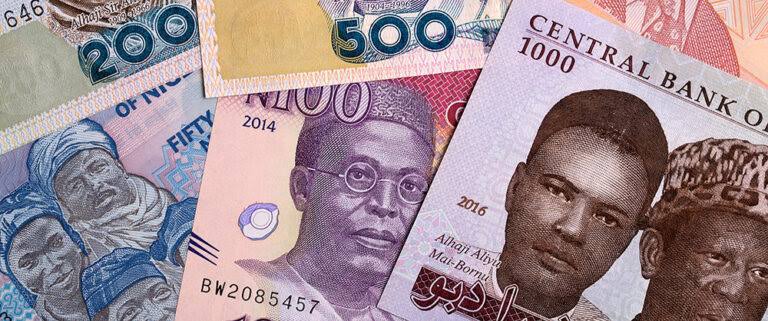The Nigerian naira has been identified as one of the worst-performing currencies in Sub-Saharan Africa for the year 2024, according to a recent World Bank report titled Africa’s Pulse. This report highlighted that, by the end of August 2024, the naira had lost about 43% of its value year-to-date. This sharp decline places it alongside the Ethiopian birr and the South Sudanese pound as one of the weakest currencies in the region.
The report stated: “Ethiopia, Ghana, and Nigeria are among the worst performing in Africa this year, and their currencies continue weakening while demand for foreign exchange remains pressing. Measures to mitigate social unrest associated with the high cost of living in Angola (doubling of the minimum wage) and Nigeria (partially reinstating fuel subsidies) are putting pressure on their public finances.”

Several critical factors have driven the depreciation of the naira. Chief among them is the surging demand for U.S. dollars on the parallel market, combined with limited dollar inflows and delayed foreign exchange disbursements by the Central Bank of Nigeria (CBN). As the World Bank explained, the demand for dollars from financial institutions, non-financial entities, and money managers has put intense pressure on the naira, accelerating its downward spiral.
“The Angolan kwanza, Malawian kwacha, Nigerian naira, South Sudanese pound, and Zambian kwacha were the worst performing currencies in the region that year. More broadly, the weakening of most African currencies resulted from foreign exchange shortages as export proceeds were subdued and international debt payments increased. By August 2024, the Ethiopian birr, Nigerian naira, and South Sudanese pound were among the worst performers in the region. The Nigerian naira continued losing value, with a year-to-date depreciation of about 43% as of end-August. Surges in demand for US dollars in the parallel market, driven by financial institutions, money managers, and non-financial end-users, combined with limited dollar inflows and slow foreign exchange disbursements to currency exchange bureaus by the central bank explain the weakening of the naira,” the report stated.

Despite efforts by the Nigerian government to stabilize the currency through foreign exchange market reforms—most notably the liberalization of the official exchange rate in June 2023—these measures have not been enough to halt the naira’s rapid decline. The currency’s persistent weakening is symptomatic of broader economic challenges facing Nigeria, including shrinking foreign currency reserves and rising inflation.
The World Bank report further emphasized that the naira’s depreciation has led to elevated domestic prices, particularly for imported goods, intensifying the financial burden on Nigerian consumers. The weakening of the currency has resulted in higher living costs, making basic necessities more expensive and putting immense strain on households across the country.
Meanwhile, other African currencies, such as the Kenyan shilling and the South African rand, have begun to show signs of recovery after facing challenges in 2023. For example, the Kenyan shilling saw a year-to-date appreciation of 21% by the end of August 2024, making it one of the top-performing currencies in the region. However, foreign exchange shortages continue to be a concern for many African nations, including Nigeria.
The devaluation of the naira has exacerbated inflationary pressures, particularly in sectors heavily reliant on imported goods and services, such as transportation. As fuel prices continue to rise, transportation costs have surged, further straining the economy. Despite the Nigerian government’s fiscal reforms aimed at stabilizing the economy, the World Bank projects that inflation will remain elevated in the months ahead.
Even though the naira had shown signs of recovery earlier in the week with an appreciation of over 5%, it suffered a steep decline on Tuesday, October 15, 2024. The currency depreciated by 6.39%, closing at N1,658.97/$1, down from N1,552.92/$1 recorded the previous day, according to data from the FMDQ Securities Exchange. This sharp decline was accompanied by a 36.62% drop in foreign exchange turnover, which fell from $343.71 million on Monday to $217.86 million on Tuesday. The reduced foreign exchange turnover reflects the growing scarcity of dollars in the market, compounding the pressure on the naira.
Earlier reports indicated that the naira had reached a new record low in the parallel market, closing at N1,700 per dollar on Monday, October 14, 2024, marking a 0.29% drop from its previous rate of N1,695/$1. Additionally, Nigeria’s headline inflation rate rose to 32.70% in September 2024, up from 32.15% in August, representing a 0.55% month-on-month increase. According to the National Bureau of Statistics (NBS) Consumer Price Index (CPI) report, the surge in inflation was primarily driven by rising transportation costs and escalating food prices.
The combination of a rapidly depreciating currency, skyrocketing inflation, and ongoing economic instability continues to weigh heavily on Nigeria’s economy, with no immediate end in sight. As the country grapples with these challenges, experts warn that urgent and robust policy measures are needed to reverse the downward trajectory of the naira and restore stability to the economy.






























